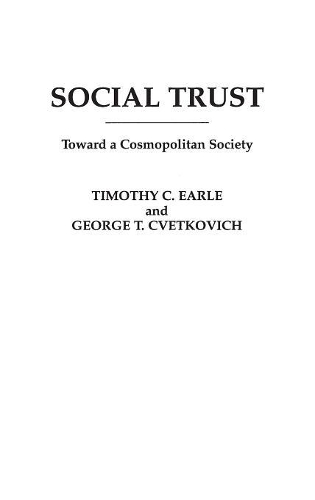
Social Trust: Toward a Cosmopolitan Society
(Hardback)
Publishing Details
Social Trust: Toward a Cosmopolitan Society
By (Author) George Cvetkovich
By (author) Timothy Earle
Bloomsbury Publishing PLC
Praeger Publishers Inc
24th July 1995
United States
Classifications
Tertiary Education
Non Fiction
Social, group or collective psychology
302.12
Physical Properties
Hardback
240
Width 156mm, Height 235mm
539g
Description
This work examines the basic social-psychological problems that generate the need for social trust and other acculturation strategies. Social trust is examined within the context of competing social problem-solving tools. The authors analyze the problem of how social trust can be encouraged within a cultural context that favors other socialization strategies, particularly distrust. They look at the relation between social trust and risk communication, specifically how social trust might be used to transform public participation; from an ineffective formalist show into a creative, community-building, problem-solving process. The work distinguishes between two forms of social trust pertinent to our world today: pluralistic, which occurs within groups and is based on existing values, and cosmopolitan, which is an across-group phenomenon and is based on emerging values. Earle and Cvetkovich's study is the story of gradual movement from pluralistic to cosmopolitan social trust.
Author Bio
TIMOTHY C. EARLE is research associate with the Western Institute for Social and Organizational Research in the Department of Psychology at Western Washington University in Bellingham. GEORGE T. CVETKOVICH holds positions with the Department of Psychology and with the Western Institute for Social and Organizational Research at Western Washington University in Bellingham. He is the editor (with C. Vlek) of Social Decision Methodology for Technological Projects (1989).
